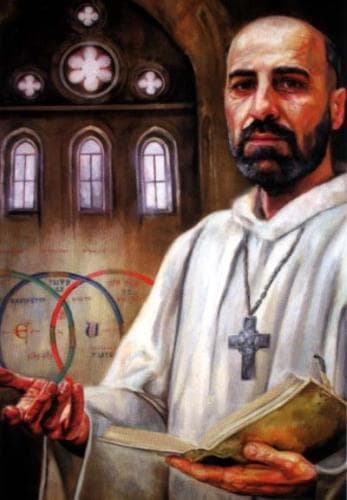
Blessed Joachim Of Fiore
Blessed
Feast Day: March 30
Death: March 30, 1202
Biography
Blessed Joachim of Fiore, also known as Joachim de Floris, Joachim of Flora, Joachim the Prophet, Joachim von Fiore, or Gioacchino, was a notable figure in the Catholic Church during the Middle Ages. Born in approximately 1130 in Celico, Calabria, within the Kingdom of Naples (in modern-day Italy), Joachim was raised in a middle-class family, his father working as a notary.
In his youth, Joachim entered the service of the Norman King Roger of Sicily, serving as a page in the royal court. Later, he embarked on a pilgrimage to Palestine, where he deepened his spiritual practice and grew in devotion to God. Upon returning to Italy, Joachim was ordained as a priest and joined the Benedictine Cistercian order at the Santa Maria della Sambucina Abbey near Luzzi, Italy.
Driven by a fervent desire for religious reform, Joachim sought to bring about positive changes within the Cistercian order. He was eventually appointed as abbot at the Santa Maria di Corazzo Abbey in Calabria in 1176, where he continued his efforts to implement necessary reforms.
After some time as an abbot, Joachim felt called to embrace the life of a hermit and retreated to Pietro Alto in 1183. During this period of solitude and contemplation, he experienced a profound spiritual revelation that greatly influenced his future contributions to theological thought and biblical studies.
In approximately 1190, Joachim left the Cistercian order and founded a congregation at Fiore, Italy. It was in this congregation that he developed his religious theories and writings, which would later earn him the title "Blessed" after his death. Joachim authored numerous works on ascetics, clerical reform, and biblical studies. His most renowned works include treatises on the Gospels, an exposition on the book of Revelation, and a concordance of the Old and New Testaments. These writings were known to be based on a moment of divine inspiration Joachim experienced one Easter morning.
Following his passing on March 30, 1202, in Fiore, Calabria, Joachim's works gained popularity and were used by certain heretical groups, such as the Joachimites. The Joachimites believed in the advent of the era of the Holy Spirit, supplanting the era of Christ, which was contrary to the teachings of the Catholic Church. Consequently, the Lateran Council of 1215 condemned this belief.
Despite the later controversies surrounding his teachings, Joachim's contributions and insights into theological and biblical studies were highly regarded. His influence extended beyond his lifetime, as he was mentioned by the renowned poet Dante Alighieri in his epic poem, Paradiso, as being in heaven.
Although Blessed Joachim of Fiore was never officially beatified, he has been widely referred to as "Beatus" since his death, acknowledging the veneration and respect he continues to receive within the Catholic Church and among scholars today.